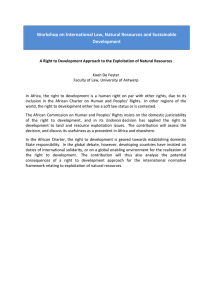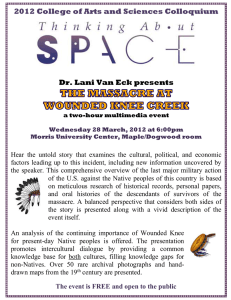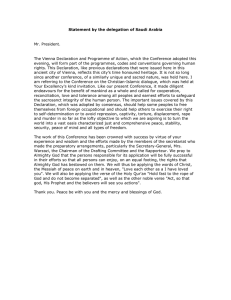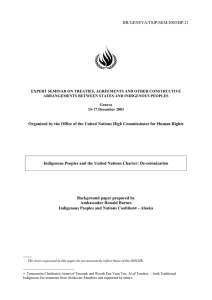Indigenous Peoples and Nations Coalition International Council For Human Rights
advertisement
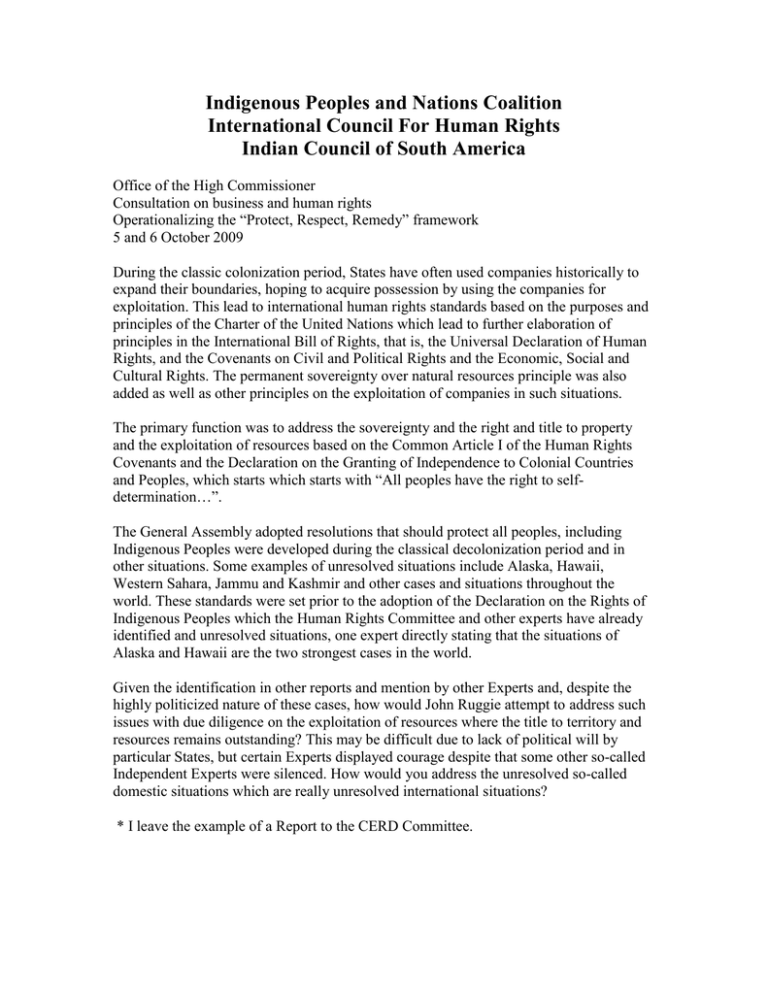
Indigenous Peoples and Nations Coalition International Council For Human Rights Indian Council of South America Office of the High Commissioner Consultation on business and human rights Operationalizing the “Protect, Respect, Remedy” framework 5 and 6 October 2009 During the classic colonization period, States have often used companies historically to expand their boundaries, hoping to acquire possession by using the companies for exploitation. This lead to international human rights standards based on the purposes and principles of the Charter of the United Nations which lead to further elaboration of principles in the International Bill of Rights, that is, the Universal Declaration of Human Rights, and the Covenants on Civil and Political Rights and the Economic, Social and Cultural Rights. The permanent sovereignty over natural resources principle was also added as well as other principles on the exploitation of companies in such situations. The primary function was to address the sovereignty and the right and title to property and the exploitation of resources based on the Common Article I of the Human Rights Covenants and the Declaration on the Granting of Independence to Colonial Countries and Peoples, which starts which starts with “All peoples have the right to selfdetermination…”. The General Assembly adopted resolutions that should protect all peoples, including Indigenous Peoples were developed during the classical decolonization period and in other situations. Some examples of unresolved situations include Alaska, Hawaii, Western Sahara, Jammu and Kashmir and other cases and situations throughout the world. These standards were set prior to the adoption of the Declaration on the Rights of Indigenous Peoples which the Human Rights Committee and other experts have already identified and unresolved situations, one expert directly stating that the situations of Alaska and Hawaii are the two strongest cases in the world. Given the identification in other reports and mention by other Experts and, despite the highly politicized nature of these cases, how would John Ruggie attempt to address such issues with due diligence on the exploitation of resources where the title to territory and resources remains outstanding? This may be difficult due to lack of political will by particular States, but certain Experts displayed courage despite that some other so-called Independent Experts were silenced. How would you address the unresolved so-called domestic situations which are really unresolved international situations? * I leave the example of a Report to the CERD Committee.

